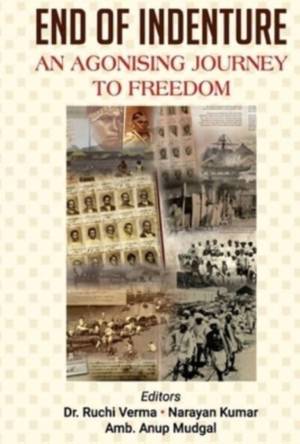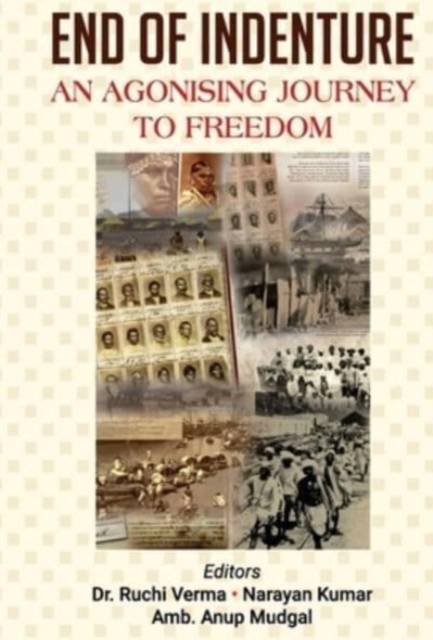
- Afhalen na 1 uur in een winkel met voorraad
- Gratis thuislevering in België vanaf € 30
- Ruim aanbod met 7 miljoen producten
- Afhalen na 1 uur in een winkel met voorraad
- Gratis thuislevering in België vanaf € 30
- Ruim aanbod met 7 miljoen producten
Zoeken
END OF INDENTURE An Agonising Journey To Freedom
An Agonising Journey to Freedom
Ruchi Verma
Hardcover | Engels
€ 54,45
+ 108 punten
Omschrijving
Growing public outrage finally forced the abolition of the curse of slavery starting with the year 1833. An immensely welcome step soon brought to the fore another major challenge of severe labour shortages in the plantation colonies. The colonial rulers devised another deceptive tool of engaging large scale cheap labour for their plantations under the so-called 'Indenture system'. The British carried out the largest such operation and mobilised close to 2 million workers from India and carried them to far off lands in the Caribbean, Africa and the Pacific. On the face of it, these workers were taken under a mutually agreed contract, called the 'agreement' which also led to the popular folklore of 'girmit'. However, in terms of protection of the workers' basic rights, this system was really no different from the erstwhile slavery. Generations of these workers struggled in agony for achieving the eventual liberation from this de-facto bondage. The plight of the indentured workers also deeply moved the Indian leadership especially Mahatma Gandhi who personally witnessed their sufferings in South Africa and Mauritius. Rising and loud criticism started demanding the abolition of indentureship in the plantation colonies, India and elsewhere. There was another unexpected pressure for able-bodied men for the First World War operations in Europe. These factors together forced the colonial powers to finally abolish the indenture system in the year 1917. Hence, the year 2017 marked the centenary of this landmark development widely celebrated along the entire 'indentured route' namely Mauritius, Fiji, Trinidad & Tobago, Guyana and Suriname. As in most of these countries, the majority of the populations are of Indian origin, this was also a cause for celebration in India. The Antar Rashtriya Sahayog Parishad with its 40 years of outreach with the Indian diaspora, especially the Girmitiya countries organised a special commemorative International conference on 20-22 April 2017 in collaboration with Indira Gandhi National Centre for the Arts (IGNCA) and Indian Council for Cultural Relations (ICCR). In addition to being addressed by Indian leadership, the conference was attended by over 100 experts from India and abroad. This book is a compilation of the proceedings, presentations and the outcomes of this important event. We hope that this publication would be useful to academics and scholars dealing with diaspora and history of the indentured system.
Specificaties
Betrokkenen
- Auteur(s):
- Uitgeverij:
Inhoud
- Aantal bladzijden:
- 324
- Taal:
- Engels
Eigenschappen
- Productcode (EAN):
- 9788184305807
- Verschijningsdatum:
- 2/01/2021
- Uitvoering:
- Hardcover
- Formaat:
- Genaaid
- Afmetingen:
- 140 mm x 216 mm
- Gewicht:
- 544 g

Alleen bij Standaard Boekhandel
+ 108 punten op je klantenkaart van Standaard Boekhandel
Beoordelingen
We publiceren alleen reviews die voldoen aan de voorwaarden voor reviews. Bekijk onze voorwaarden voor reviews.











